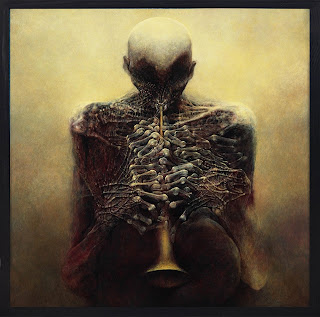#50 Thomas Metzinger: Cognitive scotoma (for conscious suffering)
Narrative self-deception may also be a clever strategy for distracting attention from suffering. It allows you to feel better about yourself. From an evolutionary perspective, any self-conscious system that discovered too many negatively valenced moments—too many conscious experiences that it would rather not go through if it had a choice—might become paralyzed and stop procreating. Like a Buddhist nun or monk, it might refrain from adding new human beings to this world of impermanence and delusion because its own insight into the nature and ubiquity of suffering would have become too clear. Monks and nuns who obey the rule of celibacy are nobody’s ancestors: They do not copy their genes into the next generation, and therefore, they are side alleys and dead ends of biological evolution. The logic of psychological evolution clearly mandates concealment of the facts of impermanence and conscious suffering from any self-modeling system that is supposed to be an efficient copying device. As a general rule (but with plenty of exceptions), natural selection will often have favored those who were aggressive and greedy, functionally attached to the goal states that they hallucinated, eager to have children and to rise in a social hierarchy, and reliably caught on the hedonic treadmill.
Systematic distraction from the potential insight that the life of an antientropic system is one big uphill battle, a strenuous affair with minimal prospect of success in more than the very short term, may certainly not be in the interests of the individual vehicle itself, but it probably causally enhances the process of genetic evolution, ensuring that genes keep getting replicated. Any conscious representation of negatively valenced uncertainty under the condition of identification (chapter 8) causes suffering. The evolutionary algorithm therefore has selected for genetic instructions that make it less likely for an organism’s insights into the deep structure of its own mind—insights of the type just sketched—to be strongly reflected in its conscious self-model. As a result, we now have a cognitive scotoma for conscious suffering, a systematic blind spot that makes it difficult to see certain obvious truths about our own lives.
 |
| Z. Beksiński |


Komentarze
Prześlij komentarz